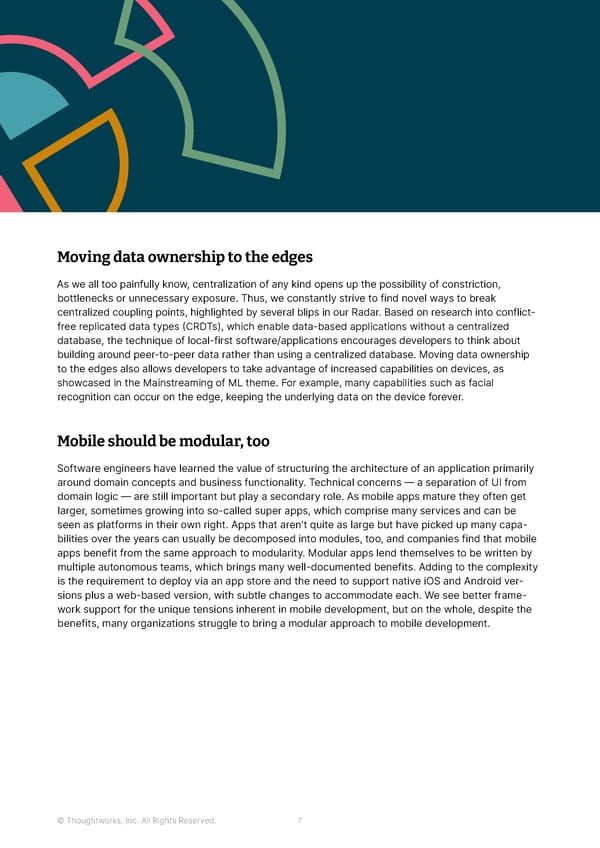Thoughtworks Technology Radar Moving data ownership to the edges As we all too painfully know, centralization of any kind opens up the possibility of constriction, bottlenecks or unnecessary exposure. Thus, we constantly strive to find novel ways to break centralized coupling points, highlighted by several blips in our Radar. Based on research into conflict- free replicated data types (CRDTs), which enable data-based applications without a centralized database, the technique of local-first software/applications encourages developers to think about building around peer-to-peer data rather than using a centralized database. Moving data ownership to the edges also allows developers to take advantage of increased capabilities on devices, as showcased in the Mainstreaming of ML theme. For example, many capabilities such as facial recognition can occur on the edge, keeping the underlying data on the device forever. Mobile should be modular, too Software engineers have learned the value of structuring the architecture of an application primarily around domain concepts and business functionality. Technical concerns — a separation of UI from domain logic — are still important but play a secondary role. As mobile apps mature they often get larger, sometimes growing into so-called super apps, which comprise many services and can be seen as platforms in their own right. Apps that aren’t quite as large but have picked up many capa- bilities over the years can usually be decomposed into modules, too, and companies find that mobile apps benefit from the same approach to modularity. Modular apps lend themselves to be written by multiple autonomous teams, which brings many well-documented benefits. Adding to the complexity is the requirement to deploy via an app store and the need to support native iOS and Android ver- sions plus a web-based version, with subtle changes to accommodate each. We see better frame- work support for the unique tensions inherent in mobile development, but on the whole, despite the benefits, many organizations struggle to bring a modular approach to mobile development. © Thoughtworks, Inc. All Rights Reserved. 7
 Vol 27 | Technology Radar Page 6 Page 8
Vol 27 | Technology Radar Page 6 Page 8